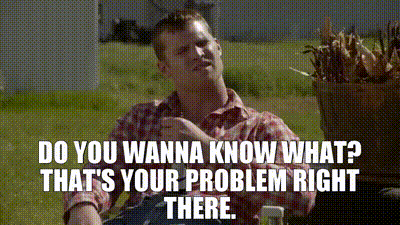I came from a family of ministry, both my mother and father are pastors. Faith and religion for a lot of people is more than stargazing and not accepting personal accountability for real life conditions like so many atheists seem to think. For some, it is putting faith into the unseeable, for some it's a crutch, or an excuse. But for others, it's more about guidelines to be a better human being, or fascination with interpreting the Bible/other religious texts. Neither of my parents are blind fools with no autonomy, my mother is a psychologist.
I think a lot of the deleterious feelings toward Christianity in general come from an oversaturation of it stateside. You've seen the kind; twenty something individualists who latch onto Wiccan or Buddhist beliefs, or something else equally exciting and foreign, because they feel it's more mystical, or aligned to their individuality or autonomy. In truth, most religions are geared toward the same end: coming to terms with mortality and making use of the time you're given on Earth to create and nurture, not dissent and destroy.
Religion has been the source of a lot of the evils in recorded history, but it's often given an unfair rap. Its a subsection of society, and like any other group of people, you will find your assholes, your pedophiles, your murderers, etc. within it. Every gamer isn't an incel who hates women. Every Republican isn't a Nazi. Every Democrat isn't a social justice warrior, etc, etc. People have a very stereotypical view of the modern Christian as a lazy, haphazard, head in the clouds, wouldn't escape a burning building because it's in God's hands type. And some are most definitely like that. But I dunno. Faith is a net positive for a lot of people, and a detriment to others. Same as a shooting range, or alcohol, or gaming, or anything else.
I'm agnostic, myself, for what it's worth. I think there are elements of our universe, and more specifically our planet/solar system that are too perfect to be left to complete coincidence. Any number of things well into the millions could be half a degree off from where they are now, and our entire species and history wouldn't have had the conditions necessary to foster it. To think that we are, in essence, made of the same things that float formlessly, without intellect or instinct through the universe, compiled into something complex is amazing. Star stuff, as Neil Degrasse Tyson says. This weird anomaly of a piece of the universe made with the express intent of understanding itself. It's powerful shit, and I'm not sure that something that wild could be random chance. But by the same token, I think that "God," as an entity or concept could just as well be Cthulu, or an impossibly powerful AI, or a middle eastern dude with holes in his hands. I mean, to consider it is like an ant considering the city it crawls through the dirt in.
I swear I'm not on drugs.




